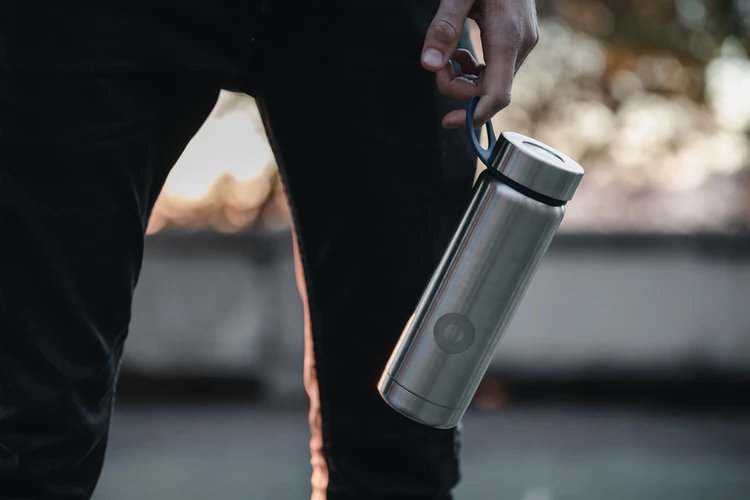In recent years, there has been an increase in the number of people trying to live a zero-waste lifestyle. Zero-waste lifestyle is the concept of separating seemingly disposable materials from the rest of your garbage. This way, you can reduce your carbon footprint as well as make your garbage lighter. It is not easy, but for many people, it is a journey they feel they have to take. [While you're here, visit this site if you'd like to find out how we can reduce plastic waste today.]
Here are some tips for you to join the ever-growing community determined to embrace a zero-waste lifestyle.
Glass jars can certainly be recycled but you don’t need to be so quick to recycle them before trying to reuse them. There are numerous reasons for this, not least of which is that glass is difficult to sort and can pose a danger in collection and recycling processes. Not to mention the energy needed to recycle it. Alternative uses for glass jars are limitless.
It’s an unavoidable fact that clutter takes up space. But unlike many household items, junk mail and other freebies have a major downside: they create waste. A lot of things that end up in our trash can be prevented by pausing, taking a moment to put down the junk mail and take a look at what we are tossing in the trash. It's likely that much of your junk mail could be prevented being mailed to you in the first place by filing a stop order with your local post office. Reducing your waste is not just about recycling more. You can reduce the amount of trash and junk mail coming into your house too. [Additionally, opting for a refurbished all-in-one computer can contribute to reducing e-waste and minimizing the accumulation of unnecessary items like pamphlets, business cards, and freebies.]
It's not always convenient or possible to buy biodegradable plastic bags, and mistakenly adding them to the compost pile can have a nasty effect on your compost. Bin liners will line your bin without adding to your trash output; great for those who are trying to move towards a zero-waste

As we all know, scraps are the uneaten part of our food that is thrown in the trash. The average person throws away about 100 pounds of food scraps every year. Disposal of these scraps emits harmful methane gas into the environment.
There are so many things that you can eat or replant from your kitchen scraps, and the list is endless. Some of them include fruit peels, vegetable peels, herb stalks, avocado pits, ginger roots, strawberry tops, muffin tops, etc.. There is just one thing that you need to make sure is before you eat anything from your kitchen scraps, double check that it is edible and make sure that it is clean.
Composting is a natural process of converting organic by-products back into the soil for the growing of plants. Some composting is even done indoors! At best, we can compost and recycle almost 80% of our common waste materials which can reduce our trash output significantly.
Composting isn't hard but does require some thought and initial planning. If you have a garden or a balcony, composting your food waste (even indoors at first) creates free nutrients for your garden, reducing your trash output.
There are many ways to reuse old clothes, materials, and fabrics. Cut them and turn them into wipes to clean glasses or cooking surfaces. Cut them slightly larger than a dish towel and use it to dry dishes or clean counters.
You can also cut scrunchies from old socks to save money on rubber bands when wrapping gifts. You can make clothes out of t-shirts and tank tops for rags and wiping surfaces. So many ways you will love it.
Many items we use every day can be borrowed instead of purchased. Sometimes a friend, neighbor, or family member may have items they no longer want but can be useful to you. This can be a great resource for saving you money and protecting the environment.
Borrowing items is one of the best ways to live more sustainably. It keeps us from buying products we may only use once or twice, allows for opportunities to try something before buying it, and means fewer things are ending up in landfills.
When you move to a more sustainable lifestyle that focuses on reducing your waste, you have to completely change the way you think about what you buy and consume. It’s not all or nothing. There are some things you will have to buy, but if you have to buy them, make them eco-friendly.
For instance, there are some household items and groceries you can buy that causes no harm to include; biodegradable/disposable waste bag, reusable sandwich wraps, recycled plastic rugs, eco-friendly deodorant with zero waste, recycled handle toothbrush, eco touch screen computer, an eco-flow low-flow showerhead, rings made from recycled precious metals, and the list goes on.
So, you don't have to give up everything from behind the cash register to live a zero-waste lifestyle--but it does mean making a few changes.

There are several things you can do to reduce the number of disposables in your life. If you are going out to eat, try to bring your silverware.
At home, make sure to have as many containers, such as Tupperware and reusable water bottles, on hand as possible so you can easily store the food you purchase before it expires. By being prepared with reusables on the go, you’ll help ensure that less garbage and fewer disposable items are sitting in landfills.
If you’re going to invest the time and money into reducing your waste, then you may as well make resources stretch further by cooking more meals at home rather than eating out. Any extra time that you spend preparing meals at home can significantly reduce your trash output.
Cooking small meals at home throughout the week will help you avoid takeout, eat healthier, and save money on your grocery bill (plus it's way more fun than going out).
A zero-waste lifestyle can reduce trash, save money, and reduce stress. Getting started with a zero-waste lifestyle might be overwhelming. But reading these tips will give you a head start on the journey to going green.
Comments
No comments on this item Please log in to comment by clicking here